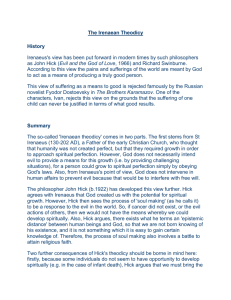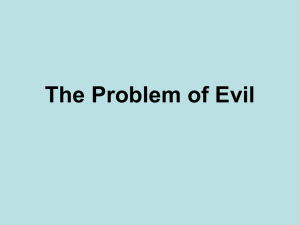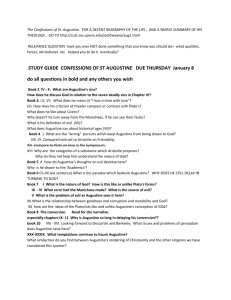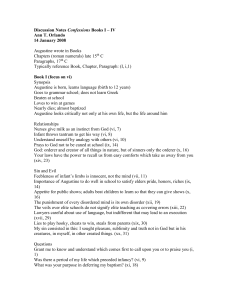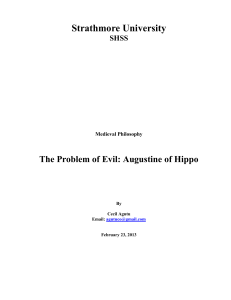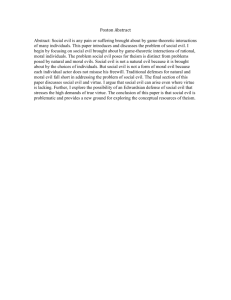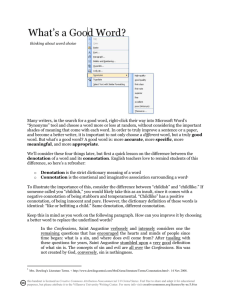The Free Will Defence - The Richmond Philosophy Pages
advertisement
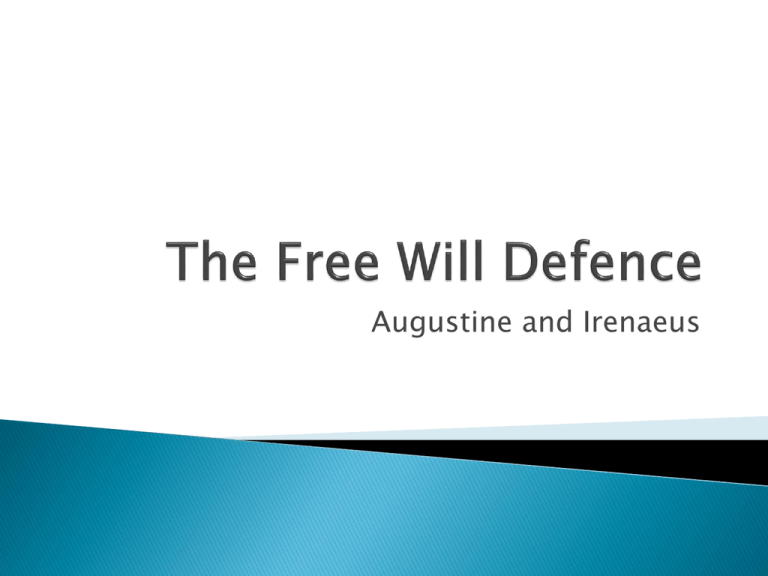
Augustine and Irenaeus Augustine argues that it was free will that led to the original sin of Adam and Eve This resulted in their subsequent expulsion from paradise by God and the introduction of pain and suffering into their lives and the lives of their descendents So Augustine maintains that although God created a perfect world, evil was introduced by the choices humans made, and thus it is the responsibility of humans not of God Irenaeus thought free will is necessary if we are to improve ourselves and the world, and to work towards spiritual maturity and noble actions So evil is an unfortunate side effect of God granting us free will. But it is a price worth paying if there is also the possibility that human free will can lead to salvation and redemption Both the Augustinian and Irenaean ‘free will defences’ view moral evil as stemming from the free choices of humans They also both view free will as a positive quality that is a gift from God to humans Do Irenaeus’ and Augustine’s Free Will Defences answer the problem of evil? Peter Vardy offers a summary of the free will defence: 1. The highest good for humans is a loving relationship with God 2. Love must be freely chosen 3. So God, who is all powerful and loving, gave humans free will (in order to achieve 1) 4. Genuine free will means that humans will sometimes choose good, and sometimes evil 5. Therefore evil exists in order that humans may choose a loving relationship with God Hick and Swinburne both point out that God does wish not to create a cosy ‘toy world’ for his human ‘pets’ to live in So it’s a mistake to look at the world and wonder why it isn’t more pleasant for humans A much greater good than pleasure is the relationship humans can have with God, and this can only be a genuine relationship if we have free will What positives are there for the free will defence? What criticisms can you think of for the free will defence?

